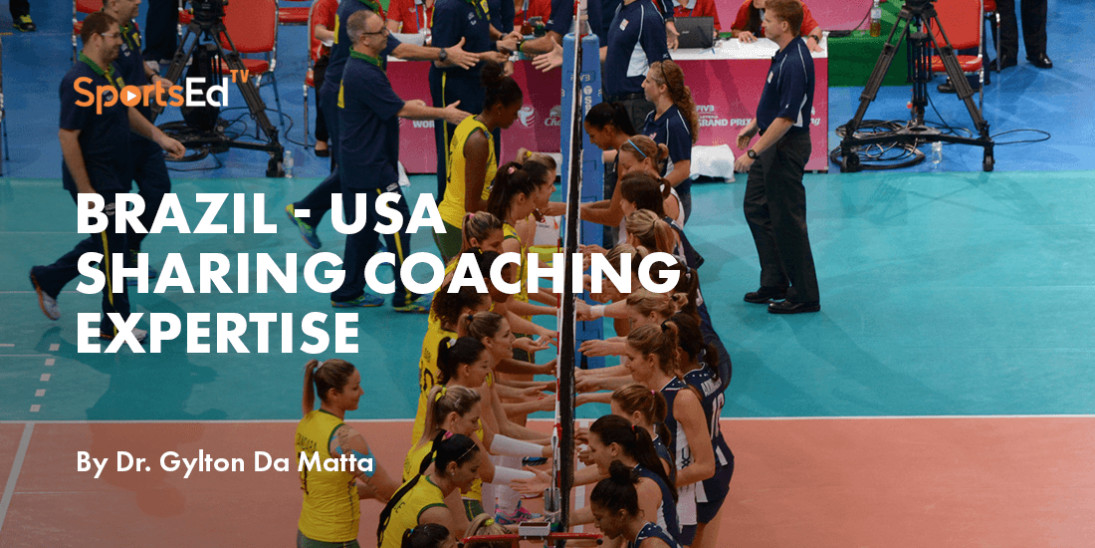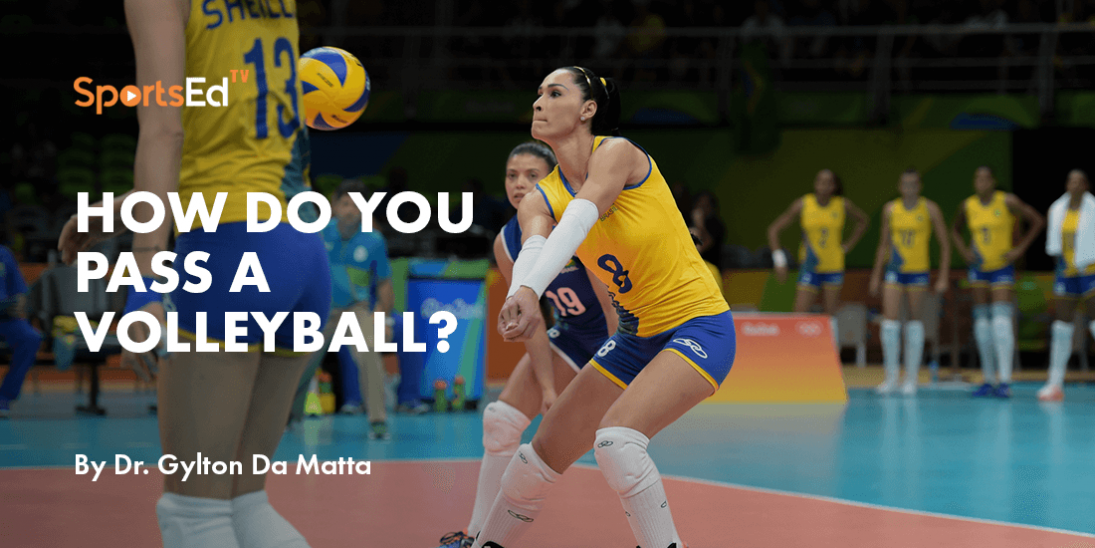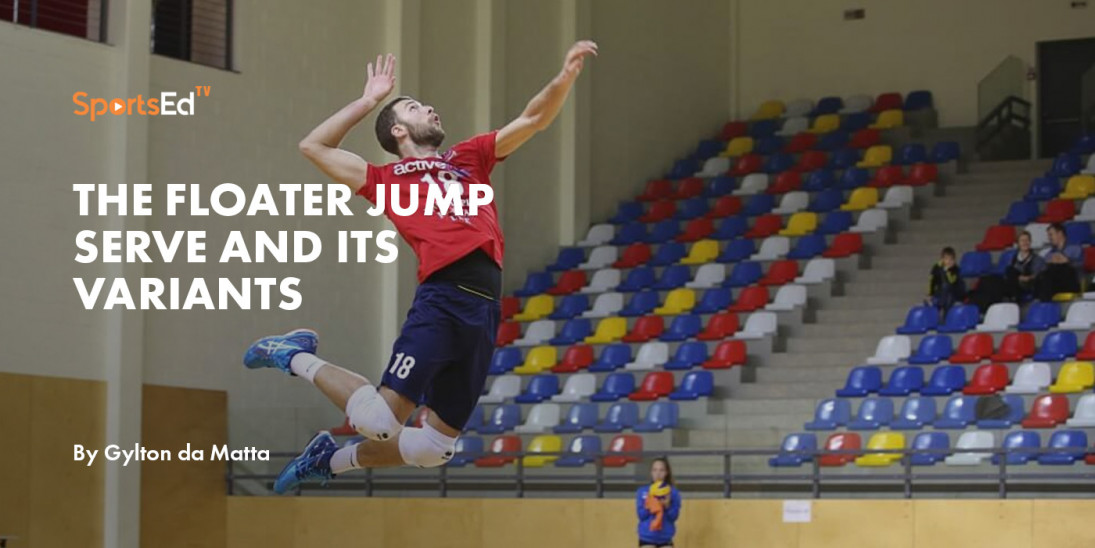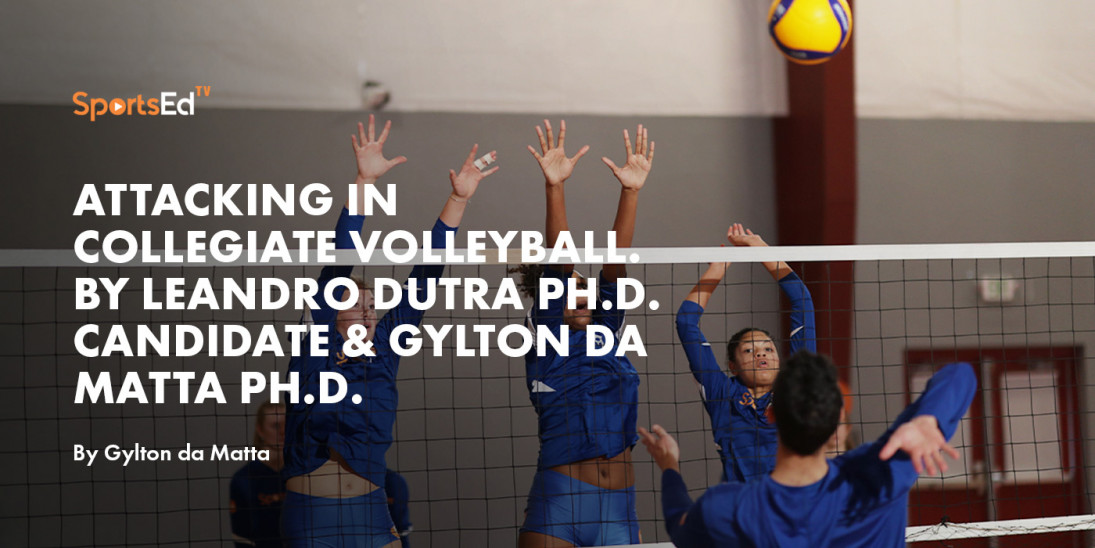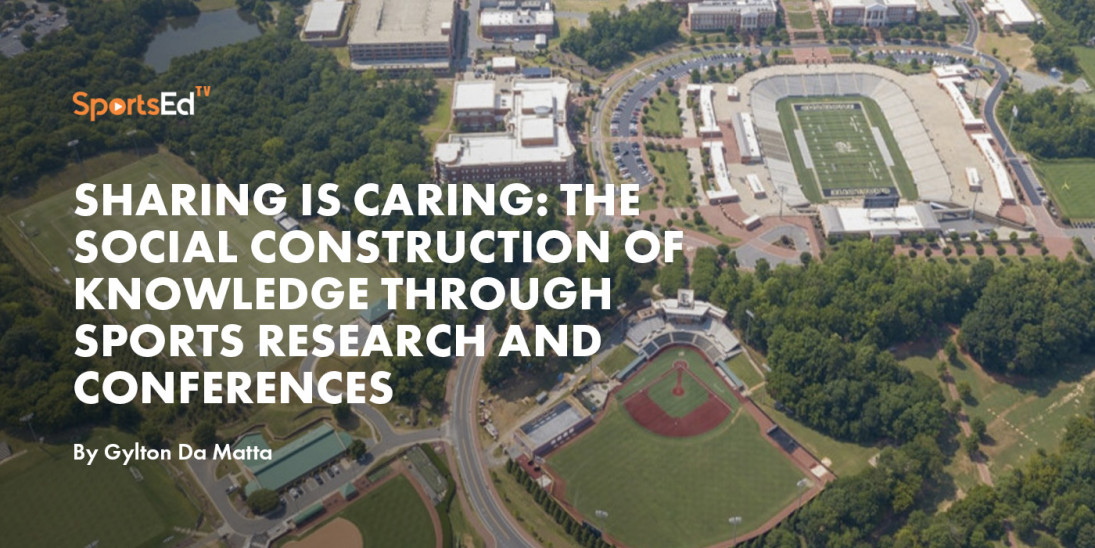Volleyball
Welcome and thanks for visiting...

Volleyball Invictus
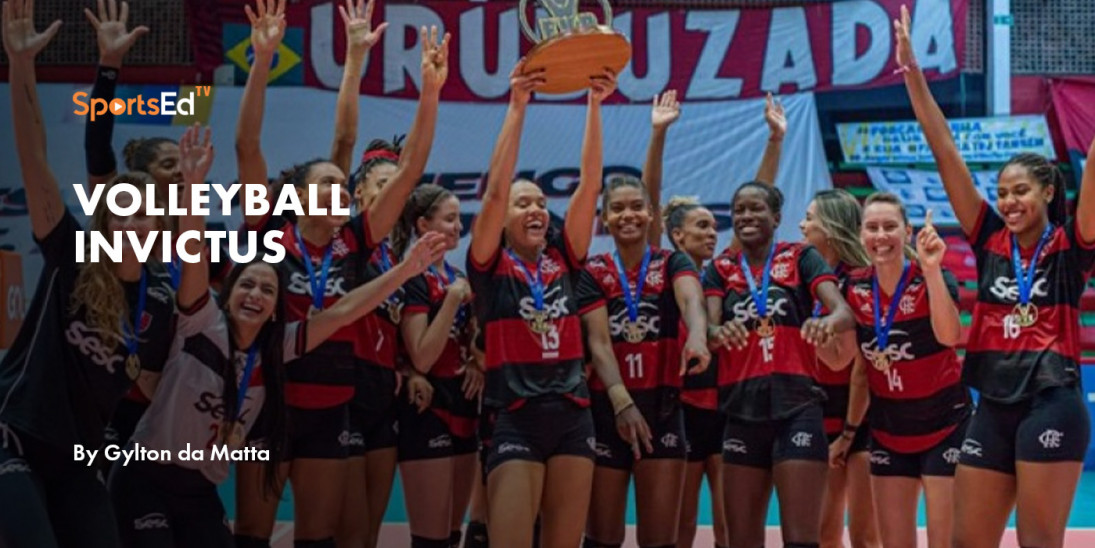
By Ricardo Tabach, Gabriel Fonseca & Dr. Gylton Da Matta.
The world of volleyball was shaken by the COVID-19 pandemic and this writing is about the struggles and reflections of professional teams in Brazil.
All over the world, volleyball coaches, players, and administrators have worked hard to deal with the uncertainties and with the adversities caused by the lockdowns of the multiple waves of COVID-19 infections peaks. In Brazil, the volleyball community embraced the adversities with resolve and resilience.
Here Prof. Ricardo Tabach and Prof. Gabriel Fonseca from SESC-Flamengo women’s pro team in Brazil tell their stories to Dr. Gylton Da Matta, Volleyball Executive Director of SportsEdTV.
In the beginning of the 2020 season, by the end of August and beginning of September, with the leadership of Bernardo Rezende, the whole coaching staff designed a strategic plan to comfort the volleyball players who came from different parts of Brazil and from other countries. They scheduled many zoom meetings and organized live interviews in order to communicate with each player and share the proposed plans, goals and objectives for the season.
The online communications and in fact, the online training was surprisingly effective, and players adhered to the prescriptions. Many players organized collective sessions of training in which the phone was connected, some music was playing in the background and five to six players were working out. This was the preparation for the pre-season.
The intense lockdown hindered the technical, physical and mental skills from all players. Both the coaching staff and administrators were also severely affected by the lockdown. But everyone decided to comply with all the public health regulations and not to whine, complain nor to create excuses.
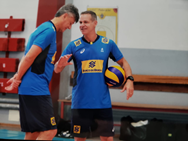
Prof. Ricardo Tabach with Prof. Renan Dal Zotto – Coaching Staff of the Men’s Olympic Team of Brazil discuss preparations for Tokyo 2021 which will be covered by Dr. Gylton Da Matta through SportsEdTV.
After two weeks of recovery from social isolation and inactivity, it was evident that the mental stress was taking a huge toll mainly on the younger players, and those from other countries. It was critical to start going to the gym focusing on individual training. All players had to be tested and some were positive and had to be in quarantine! We started doing individual weights and we initiated an educational program to inform players and staff about the COVID-19 protocol for the season prior to our presentation for practices in the gym.
The routine was brutal…players had to do the nasal test in every 15 days. The coaching staff develop a protocol to sanitize balls, bleachers, stairs, bathrooms and clean every and any surface visible and imaginable. And yet, pre-season happened on beaches as well!
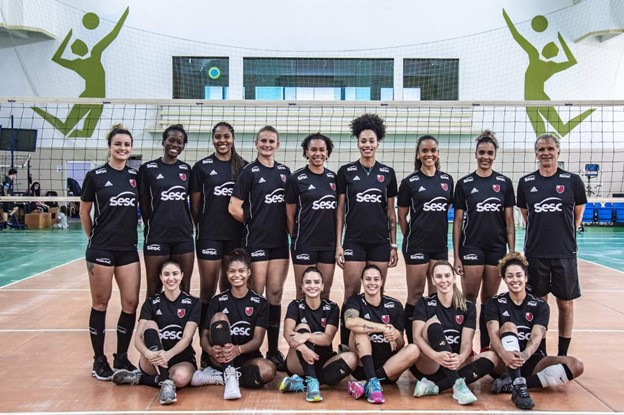
Prof. Ricardo Tabach and Prof. Gabriel Fonseca, assist Bernardinho, Hall of Fame candidate 2021, and one of the best volleyball coaches ever, in the history of volleyball, with the diverse and young Women’s Volleyball team of SESC-Flamengo that compete at the Super Liga, Brazilian professional championship.
Social distancing, washing hands and using masks became mandatory so practices started. At the beginning, there was one player in the gym for 30 minutes and as the number of players increased to three, the time of practice also increase up to one hour for each position (setter, passers, hitters) but emphasis was in general skills and conditioning. From September through October, the evolution of practices evolved through the point that the whole group of players and coaches were present and practicing “together”.
It was very, very difficult to keep all players “in their personal space” and using their own towels and equipment. Unfortunately, a couple of players and a coach got infected and had to be quarantined. That was so sad because the whole group realized of what would happen and could happened throughout the season.
The emotional stress was huge, but the resilience and adaptability created a fighting spirit. Everyone wanted to “beat the virus” understanding that beating the virus and avoiding the spread would be the solution to return to normalcy. The discipline, scientific information and dialogue were key along the whole season.
In each event, the officials for the tournament scheduled a series of meetings to decide what would be the format of the competition and also to clarify other health protocols that needed to be in place. Amid the COVID pandemic, all organizers and club representatives had the opportunity to vote for an alternative format, but unfortunately, the ego, the competitiveness and the individualism elicited that the Super Liga would happen in the same format like if nothing was going on.
It was noticeable the level of arrogance and selfishness by some colleagues and it was all aggravated by the excuse that the sponsors needed exposure and demanded financial return for their investment in their respective teams. Honestly, nobody knows if the investors and sponsors really those views had but unfortunately the intense schedule of two matches per week with flights, travel plans and strict arrangements for transportation became a stress that the whole league brought upon itself. The players were not heard and were not brought to the table to participate in the decision-making process. The main organizers, the CBV, were open to match the needs and demands of the clubs.
When the competitive phase started several teams reported players being tested positive. They had to be isolated for 10 days and tested multiple times before being integrated to their respective teams. The number of positive reports increased when all teams had to travel by bus and by planes, therefore getting in touch with people from all places and cities.
The contact with the general public that did not have the obligation to comply with the health regulations created a series of infections and the contagion of many teams was inevitable.
Many players mentioned the adoption of the bubble as reported in the media by teams in the NBA and NFL. Players and coaches started a campaign to alert the general population about the seriousness of the treat and how the general population should be cautious.
With the constant cancellation of games and the enactment of a new schedule, the season became more stressful. The calendar started to become dense, intense and distressful. Players had to time to recover and other attenuate events such as flight delay or obstruction of roads made transportation to and from game site a nightmare.
Closer to the playoffs, the number of deaths in Brazil increased from a thousand, to two thousand and by the start of playoffs there were three thousand Brazilians dying every day. Soon, many players were informed that several members of the volleyball community or from the sport community from their clubs had been victims of COVID and succumbed. This whole situation constrained CBV to adhere to all regulations previously discussed. Most teams that initially asked to adopt the regular format were not able to host games in their own towns due to COVID curfew.
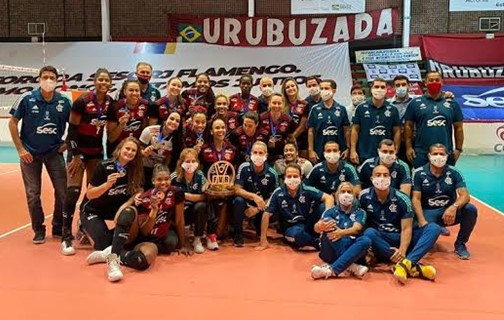
The whole SESC-Flamengo family was confined and worked in the “bubble” and won various tournaments in 2020. The true win came with the sacrifice, discipline and resolve to wash hands, eat well, sleep properly, test-test-test and use the masks, both to be healthy but also to give an example for the Brazilian people and to the largest sports fan-base in the country. The attitude to overcome the pandemic was an act of courage and citizenship towards a country mislead into a health misinformation.
The most difficult thing for the players was to play without the spectators on the stands. Volleyball players have realized that they need their fans to play their best and to be the best they can be. Being away from fans, children, youth in their wheelchairs, giving the autographs and being praised by the fans was reported as the hardest thing for the players.
Indeed, that has affected the volleyball in and off the court. Recently, it has been announced that almost 1 billion people now are playing volleyball, but the game missed the players spectacles and choreographies on the stands! SESC-Flamengo represents 32.6 supporters across the globe. The volleyball team sent a healthy message of hope to the youth.
Finally, to organize the playoffs, the Brazilian Volleyball Confederation, was able to convince all opposing clubs the need to embrace the alternative to have “the bubble” and host the finals of the SuperLiga at the Volleyball Development Center in Saquarema where all players, coaches, trainers and staff would be hosted with appropriate control to protect the players and in a safe environment to host the games. That was good governance and a common sense!
This volleyball season shows the importance of sports to be grounded in science and solid information. Many coaches has addressed the need that players to be warriors and winners, but it is also time to share that players need to be good citizens and help in the process of consciousness of those less fortunate who do not have access to proper education or to the science.
Volleyball is life, is celebration is people jumping on the stands! It is the smile of a child or the big hug that adults share as if they were children themselves.
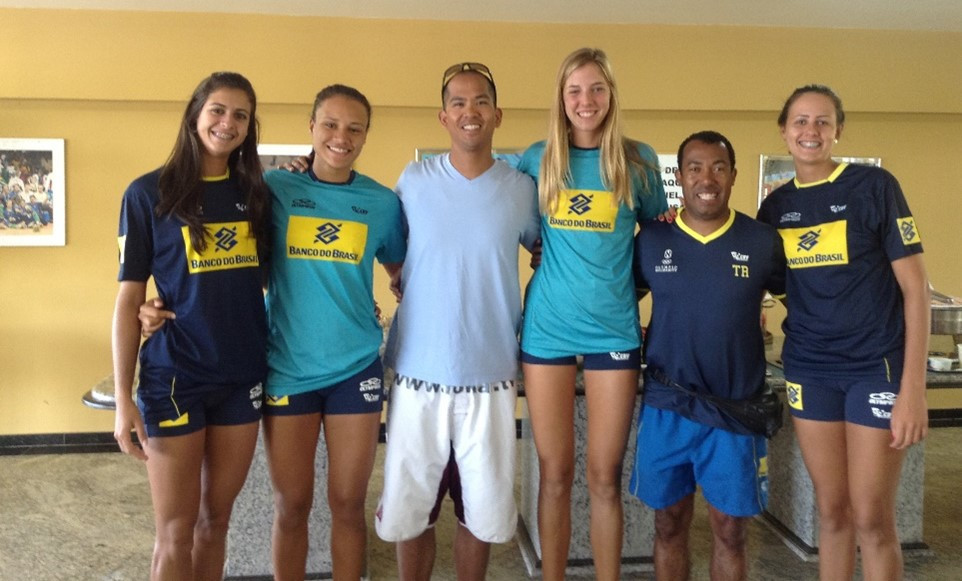
Dr. Da Matta (PhD Sports Sciences) and Dr. Jon Eugarico (PhD Physicotherapy), in an Observant-participant Expertise Development Research at the Center of Volleyball Development in Saquarema, Rio de Janeiro. The high-quality practices are focused on scientific principles of training, respect to the individuality of young players and volleyball specific injury prevention method. The Brazilian Volleyball Confederation hosted scientists in great style.
The importance of sports, of physical activity and of physical education have been accentuated now more than ever. When players were in lockdown, they utilized what they have: the social media and the internet. Unfortunately, when they went to see videos and instructional lessons online, they were chocked with the number of bad videos, terrible form and in fact, wrong technique were taught through the internet.
Volleyball players from the top teams also started to create their own series of exercise and provide sports coaching sessions attempting to help out children and fans who reported excessive pain for doing some exercises in a wrong or inappropriate way.
Since, November of 2020, the intersection of digital technology expertise with sports sciences and top performances from players of SESC Flamengo have been instrumental for the development of the best set of volleyball concepts as a result of weekly meetings between SportsEdTV, SESC Flamengo volleyball community and the Brazilian Volleyball Confederation coaching staff.
After this past 10 months, it seems a reality that the volleyball community needs to be more reflective, more collegial and more humane. It is a consensus that the volleyball league of Brazil has a bigger role beyond the one to entertain people, but instead to be role models toward public health awareness.
The coaching staff of SESC-Flamengo and the Brazilian Volleyball Confederation have already become contributors and collaborators towards creating developmentally appropriate videos for underrepresented children, young and young adults from all over the world along with SportsEdTV.
It seems that this has been the main lesson from these times of struggles with COVID-19: Sports people need to listen to each other. Elite sports need to connect with their spectators and send a message of joy, hope and compassion. And finally, the voices of our volleyball athletes need to be heard more!
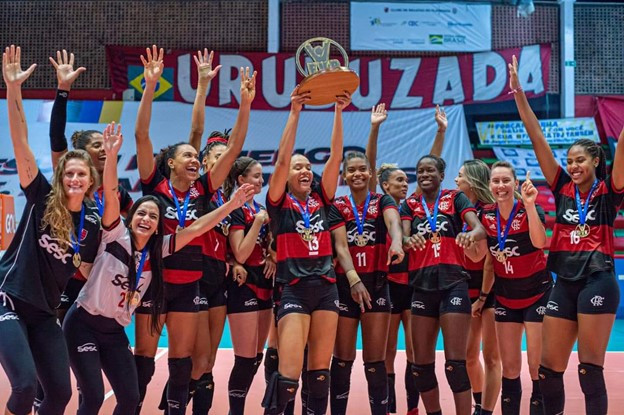
Volleyball Invictus…many lessons from COVID-19. Volleyball has grown in spite the pandemic and volleyball coaches learned the need to listen to their players and the need to listen to science more!
Sports can bring education and it can unite nations! Invictus…at the end of the day we are all more than winners. We are not dead heroes…we are living warriors. There are so many people who play volleyball who needed a voice of hope, joy and happiness. The SESC-Flamengo women’s team and their whole coaching staff delivered it! We are simply volleyball people who love doing what we do! Simple like that!

